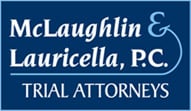Following a motor vehicle accident, it is relatively common for a person to experience some level of dizziness. While the injury may be diagnosed as whiplash, injuries to the neck can also affect the area of the brain which is responsible for coordination, balance, and spatial awareness. Any time the normal feedback from the neck area, at the base of the skull, is altered, the signaling which sends information to our vestibular system may also be affected. When there is damage to the vestibular system, vertigo, migraines, dizziness, light headedness, and spatial awareness issues can occur. Other symptoms of vestibular dysfunction include neck pain, difficulty concentrating, difficulty focusing, lapses in memory, a slowdown of the normal thought processes, and a feeling of movement, even while one is sitting still.

Most Common Causes of Vestibular Dysfunction
Whiplash and blows to the head from automobile accidents are the most common cause of vestibular disorders in those under the age of 50. Other causes of vestibular dysfunction include ear infections, high dosages or long-term use of certain antibiotics (which leads to permanent damage to the inner ear), and exposure to sudden pressure changes such as during scuba diving or a rapid descent or ascent in an airplane. Advancing age may also alter the vestibular system, resulting in balance disturbances. Chronic ear infections can damage the nerves which are responsible for transmitting signals from the ear to the brain, and this type of damage can be difficult to overcome.
Differences in Symptoms from Person to Person
Some people may experience few issues, or no issues at all, following a blow to the head. In studies done on athletes, symptoms of vestibular dysfunction were significantly diminished after only three days following a blow to the head. Brain studies, however, continued to show reduced nerve signal transmission for a full 30 days. This could be due to the fact that athletes have trained themselves to “push through” pain and other adverse health symptoms or simply because their bodies are better conditioned. Other people may feel relatively normal for 2-3 weeks, then will begin experiencing dizziness, headaches and fatigue.
When these symptoms occur weeks after an automobile accident, the person may not relate the accident to the symptoms. Doctors cannot explain why a concussion can produce such a wide variety of symptoms from person to person; however, genetics could play some part in the issue. Those with a history of dementia or Alzheimer’s in their families tend to have a more severe response following a head injury. A history of migraines or a history of visual disturbances of childhood sensory processing issues can also result in more severe symptoms of vestibular dysfunction following a car accident.
Treating Vestibular Dysfunction
A physical therapy assessment of vestibular function is necessary to determine the best treatment plan. Balance activities, vision assessments, and a cervical examination to determine whether neck sprain is contributing to the symptoms will be a part of the assessment. Treatment can include spatial awareness training, chiropractic adjustments, cold laser therapy, neuromuscular stretching, muscle stimulation, cervical decompression and altering sodium and alcohol consumption. One clinical study showed the practice of Tai Chi could make dramatic differences in the lives of those with vestibular damage. Tai Chi involves slow stretching movements in a relaxed, meditative state.
Contact Our Experienced Car Accident Lawyers
If you have suffered vestibular dysfunction following an automobile accident, it could be very beneficial to speak with an experienced auto accident attorney. The experienced car accident lawyers at McLaughlin & Lauricella, P.C., can help. Our team of lawyers consists of some of the best attorneys in Pennsylvania and New Jersey, and we will fight aggressively for you throughout the legal process.
The car accident attorneys at McLaughlin & Lauricella, P.C., have decades of experience representing injured accident victims and their families across Philadelphia, Berks, Bucks, Dauphin, Delaware, Lackawanna, Lehigh, Luzerne, Montgomery, and Northampton Counties. We are also proud to serve injured accident victims throughout the State of New Jersey. Contact us today at 215-568-1510 or fill out our confidential contact form to learn more about your legal options.



